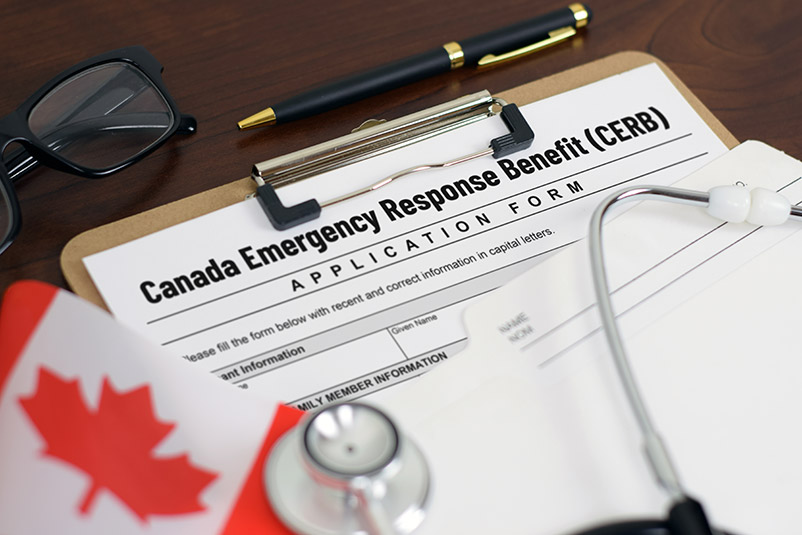Many Canadians found themselves out of work due to the pandemic and resulting lockdowns. Fortunately, the government stepped up quickly with additional benefits to assist Canadians in meeting their basic living expenses. The Canada Emergency Response Benefit (CERB) and the Canada Recovery Benefit (CRB) were the two benefits most accessible for individuals who were no longer receiving income due to COVID-19.

CERB
CERB was available to employed and self-employed individuals who met the eligibility requirements and ceased working for reasons related to COVID-19 for at least 14 consecutive days. CERB of $2,000 was paid for four-week periods from March 15, 2020, to October 3, 2020, for a maximum of 38 weeks.
If you received CERB payments, no taxes were withheld at source and you will be required to claim the payments as income on your 2020 personal income tax return. There is no clawback of CERB payments based on your annual income, but if you received CERB that you were not entitled to, you will be required to repay any overpayment.
CRB
CRB is available to employed and self-employed individuals who meet the eligibility criteria and who are not entitled to Employment Insurance (EI) benefits. Applicants must have been seeking work and not turned down reasonable work during the 2-week period they are applying for. If you had a 50% reduction in your average weekly income due to COVID-19 you may be eligible for CRB even though you are still working. CRB of $1,000 ($900 net of 10% taxes withheld at source) is available for a total of 38 weeks from September 27, 2020, to Sept 25, 2021, and you must apply for each 2-week period.
CRB payments must be reported as income on your personal income tax return. If you earn more than $38,000 (excluding CRB payment but including CERB payments) in the calendar year, you will have to reimburse $.50 of the CRB for every dollar of net income above $38,000. The clawback will be due at the same time as your income tax return for the year.
Interest Relief
Many benefit recipients didn’t plan for the tax effect of benefits received and will find they owe personal income tax on their 2020 income tax return which is normally payable by April 30, 2021. Canada Revenue Agency (CRA) is providing interest relief until April 30, 2022, on your 2020 taxes owing if you received COVID-19 benefits in 2020; your 2020 taxable income is less than $75,000 and you filed your 2020 income tax return.
Please refer to information on the tax effect of COVID-19 benefits on CRA’s website at https://www.canada.ca/en/services/taxes/income-tax/personal-income-tax/covid19-taxes.html.
 By Kathy Lenart – Insolvency Partner, Licensed Insolvency Trustee
By Kathy Lenart – Insolvency Partner, Licensed Insolvency Trustee
CPA, CA, CIRP
Member and Secretary of the Ontario Association of Insolvency
and Restructuring Professionals (OAIRP)
Canadian Association of Insolvency and Restructuring Professionals (CAIRP)
So what do we do now. No benefits they cut us right off
Hello Dawn
The COVID-19 benefits were temporary to provide government assistance during lockdown periods. I would recommend you contact Service Canada to see if you are eligible for any other form of benefit based on your employment history.
Regards
Kathy